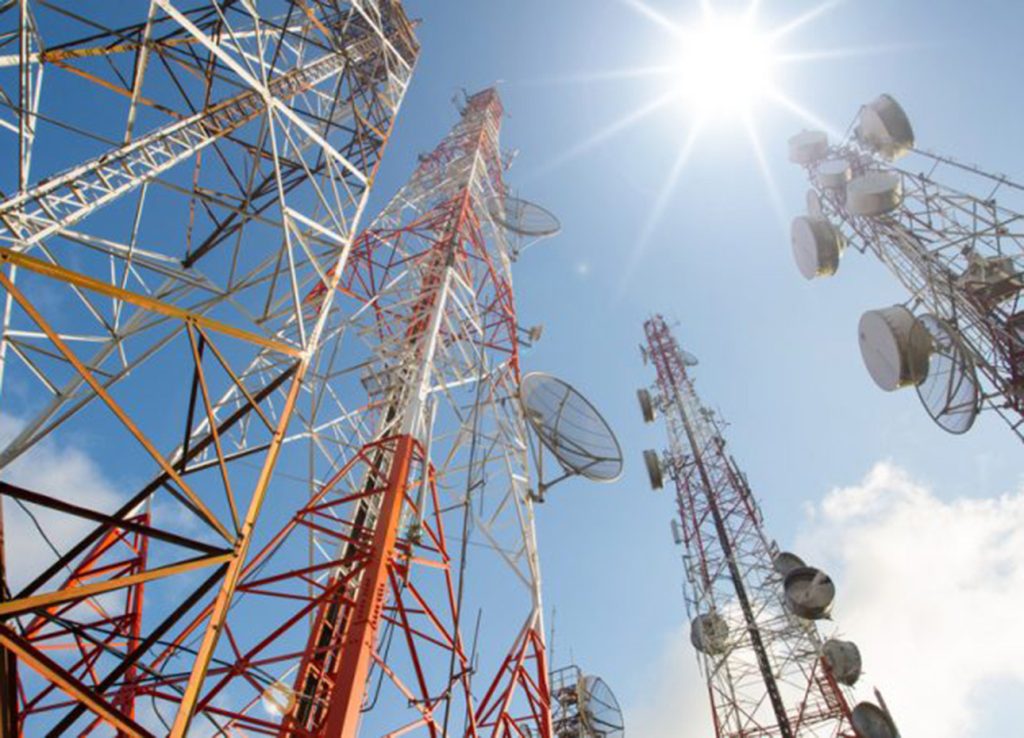
The Telecommunications Industry: Prospects and Challenges in the Era of Unlimited Data
The telecommunications sector has been an ever-evolving domain, consistently shaped by groundbreaking technological advancements that redefine the very essence of communication and data accessibility. Throughout its history, this industry has undergone remarkable transformations, each revolutionizing the way individuals connect and share information.
From the earliest days of landline telephones, which provided the first means of long-distance communication, to the proliferation of mobile devices and the internet, telecommunications has continually evolved. Landline phones offered a revolution in communication, bridging vast distances and connecting people across cities and countries. Subsequently, the advent of mobile communication further transformed the landscape, freeing communication from the confines of physical locations and enabling constant connectivity on the move.
However, perhaps the most recent and revolutionary stride in this journey has been the transition towards unlimited data plans. This transition signifies a monumental shift in how consumers perceive and utilize data services. No longer tethered by data limitations, users now have the freedom to explore and engage with a vast array of digital content without concerns about exceeding data caps or usage restrictions.
The emergence of these unlimited data plans is a testament to the industry’s relentless pursuit of innovation and adaptation to changing consumer needs. It represents a pivotal moment, offering consumers an unparalleled level of accessibility and freedom in utilizing data services.
This transformative shift not only signifies a change in consumer behavior but also fundamentally alters the way businesses operate and interact with their customers. It opens doors to new opportunities, driving the development of innovative applications and services while reshaping traditional business models.
As the telecommunications industry continues its trajectory of evolution, the shift towards unlimited data plans stands as a defining moment, shaping the future landscape of connectivity and digital interactions. It poses challenges and opportunities that will drive further innovation and define the next chapter in the industry’s remarkable history.
The Promise of Unlimited Data
The advent of unlimited data plans in the telecommunications realm has heralded a transformative era, altering the landscape of how consumers engage with and utilize digital content. These plans promise unfettered access to the internet, enabling users to embrace a multitude of data-intensive activities without concerns about data limitations or overages.
One of the most significant advantages of unlimited data plans is the freedom they offer to users in accessing high-bandwidth content. Streaming high-definition videos, whether it’s movies, TV shows, or live events, has become seamless. With unlimited data, consumers can indulge in a binge-watching session without the fear of exhausting their data allowance, allowing for uninterrupted entertainment experiences.
Gaming, both single-player and online multiplayer, has seen a substantial boost due to the availability of unlimited data. Gamers can now immerse themselves in graphics-intensive games, engage in real-time multiplayer battles, and download large game files without worrying about data restrictions hindering their gaming experiences.
Additionally, the advent of cloud-based applications and services has been revolutionized by unlimited data. Users can seamlessly access and utilize cloud storage, collaborate on documents, and engage in video conferencing or online collaboration tools without limitations. This has been particularly beneficial for remote workers and businesses reliant on cloud-based solutions for seamless operations.

Moreover, social media consumption, live streaming, music streaming, and other data-heavy activities have become more accessible and enjoyable due to the assurance of limitless data. Users can share content, interact with live events, and stay connected with their peers without the concern of exhausting their data allocations.
However, while unlimited data plans promise freedom and convenience, the actual experience might vary. Some service providers may implement fair usage policies or network management practices, resulting in potential speed throttling during peak usage times for heavy data users. This could impact the overall quality of service for certain activities.
Nevertheless, the introduction and widespread adoption of unlimited data plans have undeniably revolutionized the way individuals engage with digital content. It has democratized access to data-intensive activities, fostering a more connected, immersive, and seamless digital experience for consumers across various spheres of life.
Prospects of an Unlimited Data Era
Enhanced Connectivity: Unlimited data plans serve as the cornerstone of modern connectivity, enabling individuals and businesses to maintain uninterrupted communication and collaboration. In today’s interconnected world, where remote work and virtual interactions have become the norm, seamless connectivity is indispensable. These plans facilitate video conferencing, virtual meetings, and real-time communication platforms without the worry of data restrictions. This enhanced connectivity fosters productivity, efficiency, and a sense of connectivity, regardless of geographical barriers.
Innovation in Technology: The rise of unlimited data ushers in an era of technological innovation and development. Service providers are compelled to continually enhance and evolve their networks to accommodate the ever-increasing demands for data-intensive applications. The ongoing race to offer faster, more reliable networks, such as the deployment of 5G and exploration into future technologies, is fueled by the need to satisfy consumers’ hunger for high-speed, limitless connectivity. This push for innovation not only benefits consumers but also drives advancements in various industries, spurring the development of new services and products reliant on robust data networks.
Consumer Empowerment: Unlimited data plans fundamentally empower consumers by eliminating the barriers posed by data restrictions. These plans encourage individuals to explore the vast realm of digital content, from educational resources to entertainment platforms and e-commerce websites, without constraints. Such access not only broadens horizons but also democratizes opportunities for education, entertainment, and economic participation. It fosters digital inclusion by providing equal access to online resources, irrespective of geographical location or socioeconomic status. Moreover, the availability of unlimited data encourages the adoption of digital services, enabling consumers to leverage digital platforms for various needs, from learning and entertainment to conducting businesses and staying informed.
The prospects of an unlimited data era are promising, heralding an era of enhanced connectivity, technological progress, and consumer empowerment. As this era continues to unfold, the possibilities for innovation, growth, and societal transformation are vast, promising a more interconnected, technologically advanced, and inclusive future.
Challenges in the Unlimited Data Landscape
Network Congestion: The widespread adoption of unlimited data plans has significantly increased the volume of data traffic traversing telecommunication networks. This surge in usage, compounded by data-intensive applications such as high-definition video streaming and online gaming, strains network infrastructures. Network congestion becomes a concern as peak usage times might lead to reduced connection speeds, latency issues, and sporadic service interruptions. Service providers must continually upgrade and optimize their networks to manage the escalating demand for data without compromising on quality of service.
Data Privacy and Security: The unprecedented flow of data in an era of unlimited connectivity raises significant concerns regarding data privacy and security. With vast amounts of personal and sensitive information traversing networks, ensuring robust measures to protect user data becomes paramount. Data breaches, cyberattacks, and unauthorized access to personal information present substantial risks. Strengthening encryption protocols, implementing stringent data protection measures, and enhancing cybersecurity frameworks are imperative to safeguarding users’ privacy and mitigating security threats in this data-rich environment.
Monetization and Network Sustainability: While unlimited data plans offer consumers unrestricted access to data, service providers face challenges in maintaining the sustainability and profitability of their networks. Offering unlimited data at competitive prices strains revenue streams and challenges the viability of sustaining network expansions and upgrades. Balancing the need for affordable plans that attract consumers while ensuring sufficient revenue to cover network investments poses a financial conundrum for service providers. This challenge necessitates innovative business models, pricing strategies, and investments in network infrastructure to achieve a delicate equilibrium between affordability for consumers and sustainability for the providers.
Addressing these challenges in the unlimited data landscape requires collaborative efforts among service providers, regulatory bodies, and technology innovators. The resolution of these obstacles is pivotal to ensure the continued growth, reliability, and security of telecommunication networks in an era driven by limitless data consumption.
Navigating the Path Forward in the Unlimited Data Landscape
Network Expansion: Telecommunication companies must prioritize substantial investments in enhancing network infrastructure to accommodate the burgeoning demand for data. Expanding network coverage, deploying high-speed broadband, and integrating cutting-edge technologies like 5G are pivotal steps. The deployment of fiber-optic cables, small cell networks, and satellite communication systems aids in improving network capacity, speed, and reliability. Upgrading existing infrastructure and strategically building new infrastructure in underserved areas are essential for catering to the increasing data requirements of consumers.

Regulatory Compliance and Security Measures: Data security and regulatory compliance are paramount in an era characterized by vast data transmission. Telecommunication companies need to uphold rigorous security protocols and ensure compliance with data protection laws and regulations. Implementing encryption, robust authentication mechanisms, and secure data transmission protocols is crucial to safeguard user privacy and prevent unauthorized access. Collaborating with regulatory bodies to establish stringent guidelines and proactive measures against cyber threats is essential to maintain trust among consumers.
Innovative Pricing Models: Balancing affordability for consumers while maintaining profitability and ensuring network sustainability is a critical challenge for telecom companies. Implementing innovative pricing models that offer flexibility and value to consumers without compromising on the financial health of the company is essential. Subscription-based plans, tiered pricing structures, and value-added services can cater to diverse consumer preferences. Offering differentiated packages for varying data usage needs, such as unlimited plans with tiered speeds or data quotas, can help strike a balance between affordability and sustainability.
Strategic Partnerships and Collaboration: Collaboration with technology partners, content providers, and other stakeholders is vital for telecom companies to capitalize on the unlimited data landscape. Partnering with content creators, streaming platforms, and application developers to provide bundled services or exclusive content can enhance the value proposition for consumers. Collaborating with industry peers and technology innovators to drive research and development, standardize technologies, and explore new revenue streams is crucial for sustainable growth in this dynamic landscape.
Telecommunication companies must prioritize network expansion, uphold stringent security measures, devise innovative pricing models, and foster collaborations to ensure sustainable growth and meet the evolving needs of consumers in an increasingly data-centric world.
Embracing Opportunities in the Unlimited Data Era
The telecommunications industry stands on the brink of a transformative era marked by the widespread availability of unlimited data. This pivotal juncture presents a myriad of opportunities for both consumers and service providers, yet it is not devoid of challenges that demand immediate attention. Striking a delicate balance between innovation, security, and sustainability will be the key to harnessing the full potential of an era characterized by unlimited data.
Advancements in technology have fundamentally altered the landscape of communication, bringing unprecedented connectivity to the forefront. Unlimited data plans promise a world where consumers can freely explore the vast realms of the internet, stream high-definition content, engage in data-intensive activities, and seamlessly communicate without the shackles of data limitations. This transition heralds an era where digital experiences are boundless and accessible to a wider populace, enabling individuals and businesses to thrive in an increasingly interconnected world.
However, with the promise of boundless data come inherent challenges that necessitate proactive and strategic responses. The exponential rise in data usage puts immense pressure on network infrastructures, leading to congestion, latency, and potential service disruptions. To mitigate these challenges, substantial investments in network expansion, deployment of advanced technologies like 5G, and enhancement of existing infrastructure are imperative. A robust and resilient network architecture is essential to meet the escalating demands for data and ensure seamless connectivity for all.
Data privacy and security emerge as paramount concerns in an era characterized by the incessant flow of information. Telecommunication companies must prioritize the implementation of stringent security measures, including encryption, authentication protocols, and compliance with data protection regulations. Upholding consumer trust by safeguarding their personal data is crucial for sustained growth and loyalty.
Innovative pricing models that strike a balance between affordability for consumers and profitability for service providers are pivotal. Flexibility in pricing structures, coupled with value-added services, can cater to diverse consumer needs while ensuring the financial sustainability of the telecom industry. Strategic collaborations with technology partners, content providers, and regulatory bodies are instrumental in driving innovation, exploring new revenue streams, and delivering enhanced services to consumers.
By addressing challenges proactively, investing in robust infrastructure, fortifying security measures, and fostering innovation through collaboration, the industry can embrace this transformative phase, paving the way for a more connected, efficient, and secure digital future. As we navigate this era, it’s imperative to steer towards a cohesive, consumer-centric approach that leverages the transformative power of unlimited data while upholding the values of privacy, reliability, and innovation.

